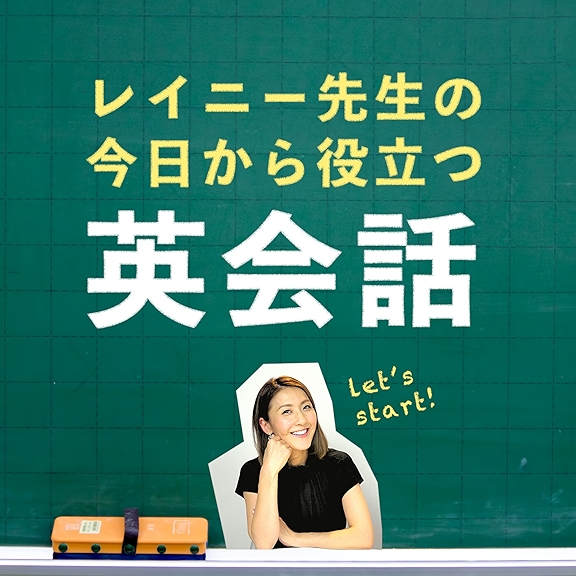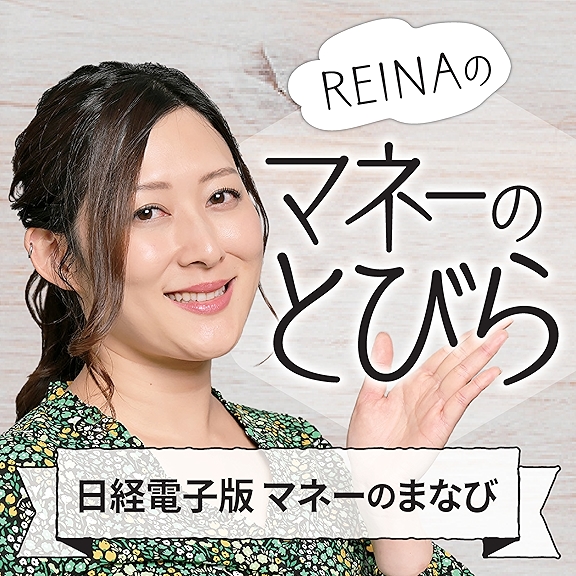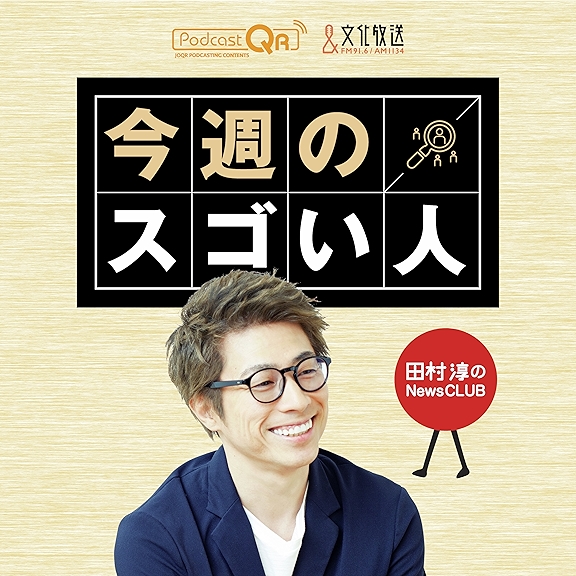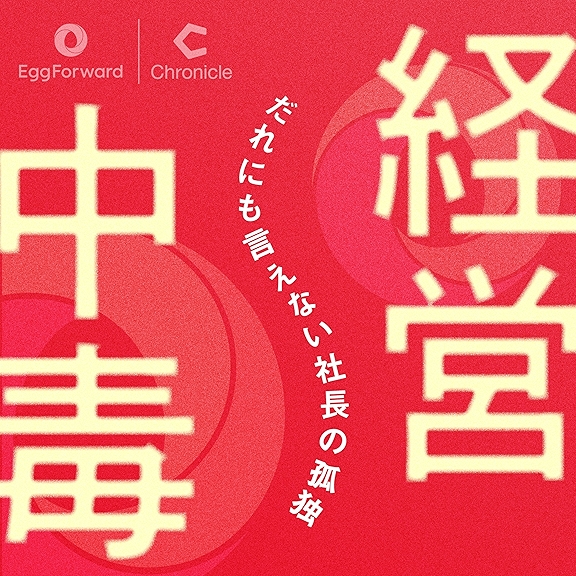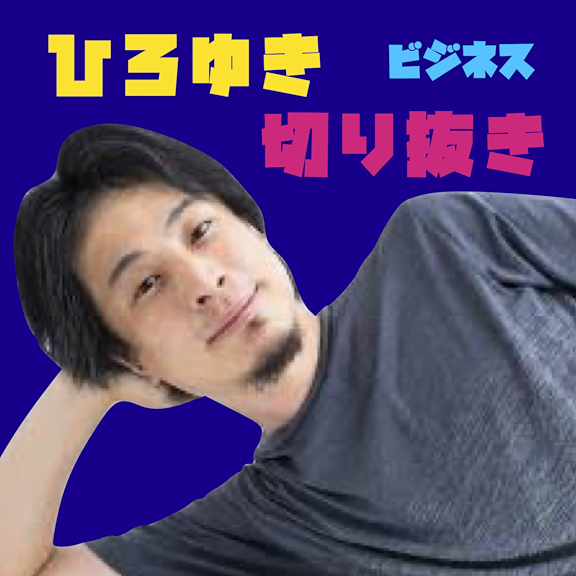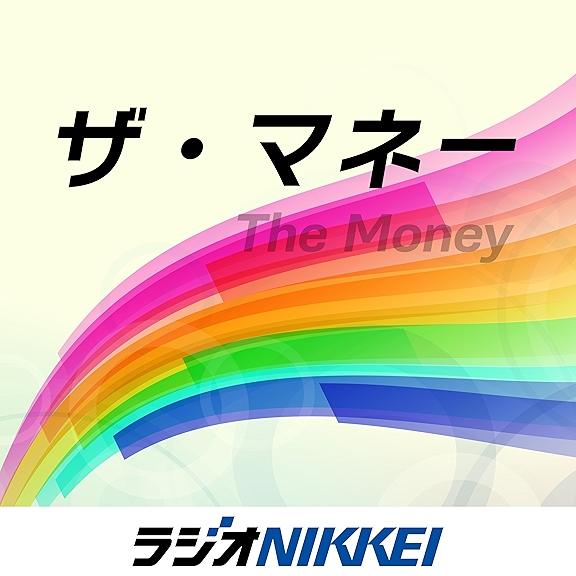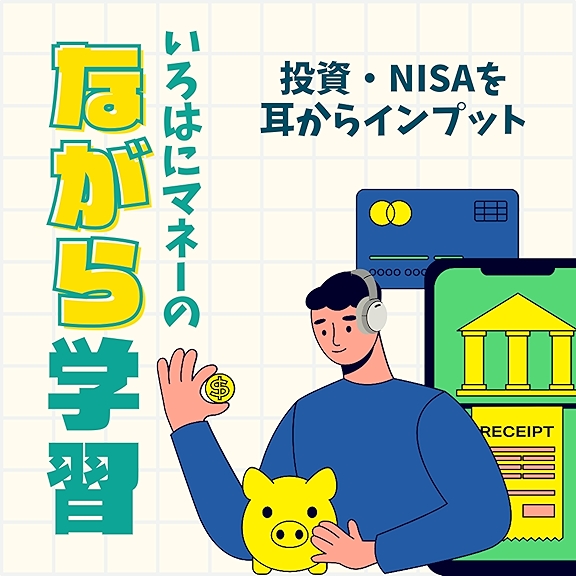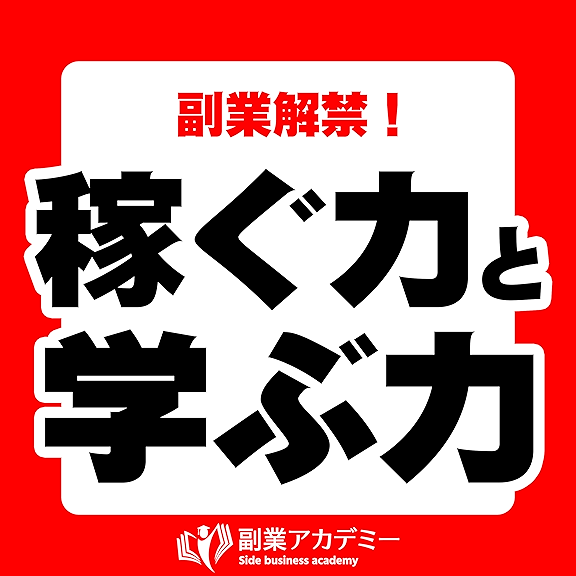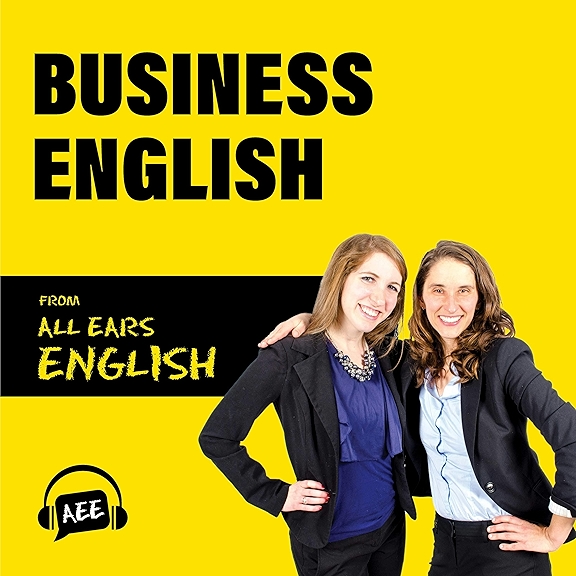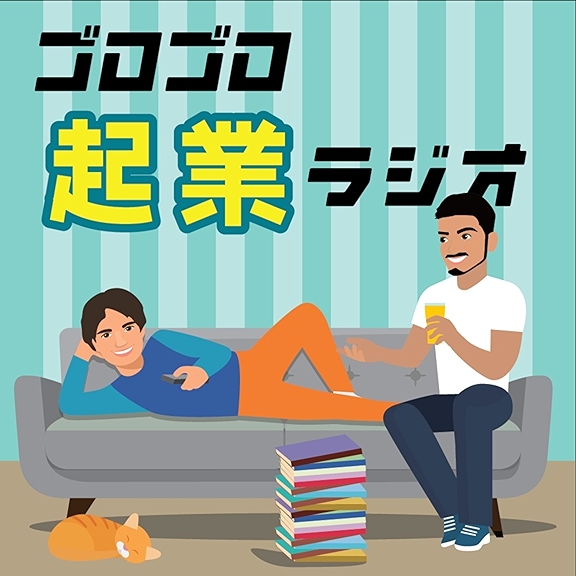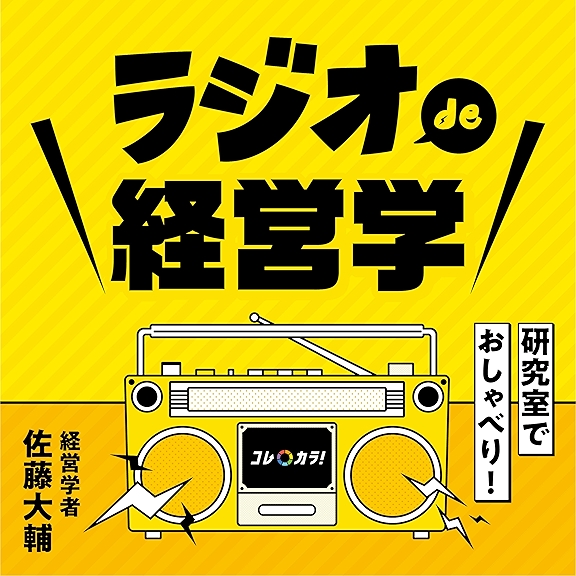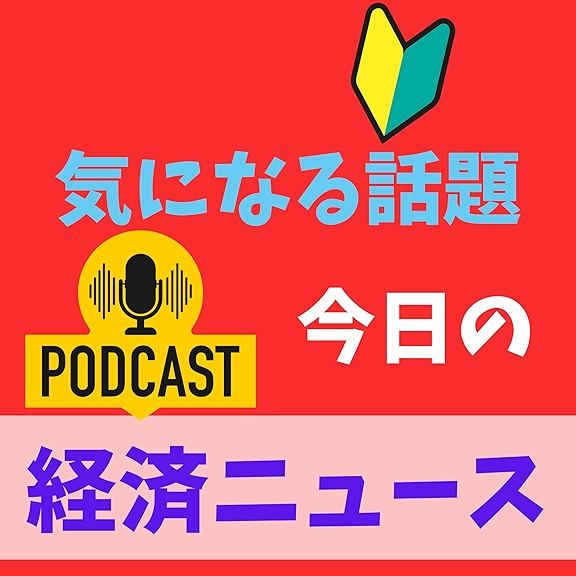
S1E3 – The Retail Avengers & The Celebration of RetailROI
Welcome to Season 1, Episode 3, the third ever episode of The Retail Razor Show!
I’m your host, Ricardo Belmar, a RETHINK Retail Top 100 Retail Influencer, RIS News Top Movers and Shakers in Retail for 2021, advisory council member at George Mason University’s Center for Retail Transformation, and lead partner marketing advisor for retail & consumer goods at Microsoft.
And I’m your co-host, Casey Golden, CEO of Luxlock and slayer of retail frankenstacks!
Together, we’re your guides on the retail transformation journey. Whether you're thinking digital and online, mobile, or brick & mortar stores, there'll be something for you!
For episode 3 we have a truly special treat in what may be the most important episode we do this season, and it’s only episode 3! We’re celebrating the history and accomplishments of industry charity organization, RetailROI, with two special guests:
· Greg Buzek, President & Secretary of RetailROI, Inc., and Founder & President of IHL Group.
· Vicki Cantrell, Vice President of RetailROI, Inc., and co-founder of Vendors in Partnership Awards.
These two retail legends and many more you’ll hear about in the Clubhouse recording lead one of the most important organizations in the retail ecosystem today. RetailROI’s purpose is to raise awareness and provide real solutions for the more than 400 million vulnerable children worldwide by working with other charities serving those children, such as orphans, foster kids, building schools, bringing clean water to communities, and more. Give a listen to this episode to learn what RetailROI has accomplished in its history over the past decade, what the future holds, and most importantly, what you can do to support them. You’ll hear about RetailROI’s most important fundraiser – Super Saturday, happening at NRF 2022 on January 15th.
For more information about RetailROI, the important work this group does for vulnerable children everywhere through all the charities they work with, to register for Super Saturday if you’re a retailer, or to learn how you can sponsor Super Saturday if you’re a solution provider, visit https://www.retailroi.org
The Retail Razor Show
Follow us on Twitter: https://bit.ly/TwRRazor
Connect with us on LinkedIn: https://bit.ly/LI-RRazor
Join our club on Clubhouse: http://bit.ly/RRazorClub
Listen to us on Callin: https://bit.ly/RRCallin
Subscribe on YouTube: https://bit.ly/RRShowYouTube
Subscribe on Apple Podcasts: https://bit.ly/RetailRazorShow
Retail Razor Show Episode Page: https://bit.ly/RRShowPod
Host → Ricardo Belmar,
Follow on Twitter - ****https://bit.ly/twRBelmar
Connect on LinkedIn - ****https://bit.ly/LIRBelmar
Read my comments on RetailWire - ****https://bit.ly/RWRBelmar
Co-host → Casey Golden,
Follow on Twitter - ****https://bit.ly/twCasey
Connect on LinkedIn - ****https://bit.ly/LICasey
Read my comments on RetailWire - https://bit.ly/RWCasey
TRANSCRIPT
S1E3 Retail Avengers & The Celebration of RetailROI
[00:00:22] Ricardo Belmar: Hello. Good morning, good afternoon. Or good evening, whatever time of day you're listening. Welcome. Welcome. This is season one, episode three, the third ever episode of the retail razor show. I'm your host, Ricardo Belmar, RETHINK Retail top 100 influencer and one of RIS News, top 10 movers and shakers in retail for 2021. And lead partner marketing advisor for retail and consumer goods at Microsoft
[00:00:46] Casey Golden: And I'm your co-host Casey Golden CEO of Luxlock, where I'm obsessed with the relationship between a brand and a consumer determined to slay retail, Frank enstacks
[00:00:57] Ricardo Belmar: All right, Casey. So how many Franken stacks have you slain since last episode? Inquiring listeners want to know?
[00:01:03] Casey Golden: Well, now that I'm counting, we've got three in the works.
[00:01:06] Ricardo Belmar: That's incredible. Can't wait to hear how many more it is next time. Let's see if our listeners start tweeting out their guesses for next time on how many that might be.
[00:01:13] Casey Golden: I love a good tweet storm.
[00:01:15] Ricardo Belmar: Absolutely me too. Me too. So Casey, this episode is a really special one for me and a topic that I think carries [00:01:22] so much meaning for so many people in retail, I'm talking of course, about the retail ROI charity organization. That's run by Greg Buzek and supported by some incredibly thoughtful and giving people, including our second special guest this week, Vicki Cantrell. Someone with an incredibly rich history in retail.
[00:01:39] And for those that don't know, retail ROI, it's an organization that helps vulnerable children around the world, whether it might be orphans, foster kids adoptions, or just helping schools that lack running water or electricity or need just a better chance at education and bringing food to their table.
[00:01:56] Retail ROI works with a number of other charities to bring these missions to life. And they've helped hundreds of thousands of kids around the world over the last decade. I first became involved with them about five or six years ago in a project they supported in Liberia during the Ebola crisis and even a webinar to school kids in Honduras about career paths.
[00:02:15] But I'll save that story for after we listen to the session
[00:02:18] Casey Golden: And this was an emotional clubhouse sesh, listening to [00:02:22] Greg and Vicki's stories. You just, you can't help but celebrate their massive accomplishments.
[00:02:27] Ricardo Belmar: That is so true. Absolutely true. And actually, one of our retail avengers team, Jeff Roster, he's also had an incredibly huge role in their activities over the years.
[00:02:37] In fact, he's the one that introduced me to retail ROI all those years ago.
[00:02:40] Casey Golden: This is such an important topic. One with such rich accomplishments. And Greg is just one of the nicest people in retail and in Vicki, she's just literally amazing. It's such a treat to have conversations like this and share the impact retail ROI is making with vulnerable communities and supporting our youth. Let's get started!
[00:03:01] Ricardo Belmar: I'm totally with you. This might just be one of the most powerful, both heartwarming and heart wrenching podcast episodes we're going to do this season . We'll let Greg and Vicky and Jeff tell us the real story behind retail ROI, all of their past accomplishments and where they're going in the future.
[00:03:17] So let's give a listen to the Retail Avengers and the Celebration of RetailROI.[00:03:22]
Clubhouse Session
[00:03:30] Ricardo Belmar: Welcome everybody to another session in the Retail Razor Club room. We've got a special one today where we're doing a celebration of one of what I feel is one of the most important organizations in retail today and that's Retail ROI. And some of you in the audience are very familiar with retail ROI and what it's accomplished and what it's done in the past.
[00:03:56] And maybe others in the audience might not be quite as familiar. You'll get to learn quite a bit about it through the course of today's session. We've got a couple of special guests with us today, Greg Buzek and Vicki Cantrell, who I probably can't think of anyone else who can do a better job of telling us everything there is to know about RetailROI
[00:04:15] and and as I say that, I'm sure Jeff is ready to, to jump in and, and raise his hand as well. Being the person that introduced me to retail ROI many years ago. So with that, why don't I ask Greg and Vicki, to give a brief introduction to yourselves. Vickie, why don't you go first?
[00:04:29] Vicki Cantrell: Hi, [00:04:30] everybody. Great to be here on a Friday afternoon at five o'clock. I will give Ricardo any grief cause everybody does, but this is a topic that's worth a Friday at five o'clock. And I've been involved with retail ROI since the beginning and, and pleased to be working alongside Greg and Randy to figure out how we increase our shop and how we make a great experience and, and divide the money and make the biggest impact.
[00:05:00] So I started 10, 11, 12. Are we 12, 11 years and have many great experiences not only traveling myself to various countries, but also taking both my children there, and the impact has been on our life and our hearts pretty impactful and happy to tell you more about it. I've been in retail for ever and ever and all sides of retail.
[00:05:28] So [00:05:30] I guess that's how I got involved because it's my fellow cohorts in retail that brought this to bear
[00:05:36] Greg?
[00:05:37] How RetailROI Began
[00:05:37] Greg Buzek: And I'm Greg Buzek I guess my day job or my first day job is being president of IHL group we're a retail analyst firm Gosh, this started because I had started a orphan care ministry at our church and we were at Oracle open world.
[00:05:53] And it was the day that Lehman brothers went under September 15th, 2008. And Paul Singer of SuperValu and previously with target was there. And I knew he was an adoption advocate. So we had a meeting and said, you know, Hey, maybe we can do something in the industry. And we could call it, you know, at that time there was a lot of mergers and acquisitions and everything was focused on efficiency.
[00:06:17] And then we just call it, we'll call it ROI, a play on words which ends up being the world's geekiest name for a charity retail ROI. And we just said, we call it the retail orphan initiative and that's how we get our acronym there. [00:06:30] And that day with the help of Rose Spicer from Oracle Paul Singer basically did his OpenWorld presentation about 10 minutes on target and the rest on adoption , and we were all astounded and we came out of that meeting and said, Let's let's do something together.
[00:06:49] And I know Jeff was there Rose was there Cathy Hotka, Mark Milstein, and I think Cathy Marder were there and we said, yeah, let's do something together. Instead of just competing with each other, we all know each other. We see each other all the time. It'd be fun to do something together in the industry.
[00:07:06] So that's the start of retail ROI . And we had everybody assumed that Paul would be the guy to lead it. Paul had been the guy that took over for Dave Thomas, at Wendy's lobbying Congress for funds, for foster kids and adoption. In fact, he has started a group called the congressional coalition on adoption Institute , that he helped fund.
[00:07:25] Initially that is the only thing in Washington that has over [00:07:30] 350 members of Congress, I think in total that are on the caucus together and agree on something. Paul, was a giant for that. So we all assumed he would run it. There were three of us, myself, Paul and Mark that put up the initial seed money to get started.
[00:07:44] And we signed the paperwork. And three days after we signed the paperwork, Paul called me and said Greg, I just got a call from the neurosurgeon. I have a tumor and I have to have surgery next Monday. And unfortunately Paul, when he had surgery never regained the ability to speak clearly and, and reason and stuff.
[00:08:07] So it kind of fell, fell to me to take the leadership role for retail ROI. So that's how we started in 2008,
[00:08:15] Ricardo Belmar: Thanks for the quick description for that, Greg. Jeff, you've got a pretty long history with retail ROI as well. why don't you give a quick introduction,
[00:08:21] Jeff Roster: hi, Jeff roster. Let's see, what am I a co-host of a, I guess this week in innovation, on some advisory boards and try [00:08:30] to keep Ricardo out of trouble at the center for retail transformation, which we're both doing a very poor job at so lots of trouble down the road.
[00:08:40] Ricardo Belmar: We're working on that.
[00:08:41]
[00:08:41] How RetailROI Works
[00:08:41] Ricardo Belmar: So Greg Vicki, let me ask maybe a couple of questions. So with that history that Greg just gave , on how things started with RetailROI. Give us a quick overview on how retail ROI works. I always describe this to everyone as a charity group, that's basically built by the retail industry, run by people in the retail industry and that it works with other charities to do a lot of great work around the world, helping children in need, whether it's orphan children's foster care.
[00:09:09] Greg Buzek: Sure. Yeah, just to begin with, the first step we had to make is we needed to raise, Hey, we had a charity, we got to raise money.
[00:09:17] So we said how do we, how do we raise money? And we looked around the room and said, gosh, we know events. We know who all the best speakers are. And let's put on an event aligned with the timing of the NRF [00:09:30] show. We'll call it Super Saturday and we'll invite all the retailers to come for free.
[00:09:35] And we'll charge vendors that want to sell to retailers a fee, a sponsorship fee to get access. So we just basically said ladies night at a bar, so to speak was the approach. And that became our fundraiser in terms of the initial charities that we did. The first initial charities were people that I had already started working with through some other experience.
[00:09:57] And then after that, it started to blossom as other people got involved in. So we have really three criteria when it comes to working with charities. Obviously it's gotta be a 5 0 1 C3 based in the United States. They're involved with vulnerable children, orphan foster care clean water, something to do with vulnerable children in some, in some manner.
[00:10:19] Number two, it can't be a church or a synagogue or a faith. It's gotta be a separate entity altogether. So it can have a faith-based component to it. [00:10:30] But it's not something that's part of a community of faith in and of itself. And then the third piece of it is somebody in the industry has to be personally involved in the charity themselves and vouch for the integrity of that charity.
[00:10:44] And then we start really small with grants as low as $5,000. And we go up from there, we present that back to the board with the results, and then, then we grow from there. So in total, I think we've, we've teamed up with over 55 charities to date with different variety of grants and they work in 27 different countries.
[00:11:04] Ricardo Belmar: Thanks for that overview, Greg. I want to read some stats that you've given me before, just for, to kind of set the stage a bit for everyone here on what some of the accomplishments are. And to let everyone know, we recently at Microsoft had a, special giving event held to try to raise some funds for retail ROI, and Greg and Vicki were kind enough to join that session.
[00:11:22] And Greg presented , a little bit of background for the employees that were attending that event. And I just want to read some of those and see if anybody on the stage [00:11:30] has some reactions and wants to share some other info from that. So the one that kind of grabbed me a lot that you mentioned, Greg was, if orphans were a country, they would be the eighth largest country in the world.
[00:11:40] And for other one was that for foster kids that age out of the U S system within 18 months, 85% of the boys are homeless or in prison. And over 70% of the girls are pregnant, homeless, or in prison. Those stats are just astounding to me. And I'd never had thought about just how significant,, this really is.
[00:12:01] Greg Buzek: Yeah, it's a, it's a huge issue. And that's, that's part of our, our role. We see our role as three parts. One's the knowledge of this problem that you just outlined. Two is leveraging our skill, sets our networks who we know what we know to make a difference and coming alongside different organizations that are doing great work, where we can double triple or quadruple the impact.
[00:12:24] And then third is funding for projects . So you just gave some of the core stats out there[00:12:30] for things.
[00:12:30] Accomplishments
[00:12:30] Ricardo Belmar: And then I'm going to go ahead and share some of the accomplishments stats that you shared with me before. So this is since 2010 retail, ROI has funded over 206 projects in 27 countries.
[00:12:42] Installed 26 computer labs. I think those were all in schools, correct
[00:12:47] Greg Buzek: schools and, well, there's been a couple that have been like an after afterschool programs.
[00:12:51] Ricardo Belmar: Oh, okay. Okay.
[00:12:53] Yep. And then also on the, on the list of what you provided before, built or remodeled 21 school buildings in or homes and help rescue over 1400 women and children from sex trafficking through border monitoring, help support over 1500 adoptions and built 14 wells and clean water projects.
[00:13:11] I think overall you, calculated and estimated that over 252,000 children have been helped by the people of retail ROI since 2010, which I think has an amazing accomplishment worth celebrating..
[00:13:23] Greg Buzek: Yeah. And, to be, just to be perfectly transparent, it's our charity partners that have done this work.
[00:13:29] We've, [00:13:30] we've kind of played matchmaker at times , and lended some, funding for things. But it's the, the real benefits of retail ROI is when we take really successful people in the retail industry and connect them with these charities and then let them go just, just make the introduction turn I say, turn the light bulb on if I can turn the light bulb on and just point people in the right direction.
[00:13:54] Amazing things happen. So I'll give you an example. So this makes it all clear. So we had a need in Honduras, we had a school of 650 kids that literally could, they had enough money to feed the kids or to pay the teachers. They couldn't do both. So they reached out to us and we said, well what do you need?
[00:14:14] He says, well, we need corn. Cause we make 4,300 tortillas a day by hand of there to feed the kids. And so he said, we looked at it and said, well, who, where can we get corn? And we said, who's the biggest buyer of corn? Well happened to be [00:14:30] Cargill. So we placed a call to Cargill. Cargill ended up donating the two containers of corn.
[00:14:36] There was only one problem. It came in individual pieces. And they were literally, you know, comes out of the grain silo into the train car and that's how they deliver it. Well, we needed to figure out how to get it to Honduras and some sort of package. So somebody at Cargill then took it upon himself and said, you know what?
[00:14:52] I know somebody, that's got a seed packing plant, let me call them and see if they're willing to pack it for us. And so they did, they agree. Fisher seas agreed to packing in, into 50 pound bags . And then there was another lady who does shipping and logistics for a living. She ships containers all over the world
[00:15:08] every day, she came on board and she scheduled the FDA inspection, the shipping, and we had a year supply of food delivered for $7,500 for 650 people. That's just one example of a project that was there.
[00:15:22] Vicki Cantrell: You know, Ricardo that's a, that's a great one that Greg talks about, but when we talk about [00:15:30] bringing retailers or bringing people in the industry alongside these charities, it could be in any number of ways.
[00:15:37] And it's largely based on, as his example shows what's already in their sweet spot, how their job every day, and just suddenly applying what they do every day to, to a new situation. We had a guy Bob Moncrief who developed an entire curriculum around. Kind of how kids could build their business. And what we, you know, when Greg talked about that, we go alongside our charity partners.
[00:16:08] These are people that are on the ground and understand how to, you know, get things where they need to be. But they also, what we're trying to do is give these charities or people, we work with the ability to sustain themselves, whether it be growing crops or, or whatever. And so this was a [00:16:30] situation where these kids, when they graduate, they needed to have a skill start a business, go to college, et cetera.
[00:16:37] And so he developed an entire curriculum. I think he was with Accenture at the time, Greg. And so we had this startup shark tank competition where we on our trip to Honduras, Jeff, me, Laurie Mitchell-Keller you know, several other heavy hitters in the industry. We're able to judge these and listen to their pitch as is after they had been through the whole curriculum.
[00:17:04] So I guess, you know, it really is and that has continued every year and has now expanded into Jamaica,
[00:17:13] Greg Buzek: Jamaica, south Africa. Yeah. So four different countries that has gone. In fact, just recently in Jamaica Parker, Avery group to shout out to them. They've taken it to a whole new level with the entrepreneurial program and we had six [00:17:30] students go through an eight week course.
[00:17:32] And I'm telling you the winning presentation there. I've seen 40 year old MBAs not do as well as this 18 year old. And sharing their vision for the cosmetics business they wanted to create, basically it's a cosmetics for African or dark skin, people that have acne. And how do you, how do you provide cosmetics that heals the skin as well as provides beauty and makeup on top of it.
[00:18:01] And it was just fabulous and they invested Parker, Avery invested. I think it was close to $6,000 a us into seed funding to help get that launched there as a result. So it's, it's really special when, like I said, when we can get people connected and go and there's so many, there's so many examples of it.
[00:18:23] Sometimes it's just funding. So like in the country of Liberia, The the [00:18:30] heart over there was, Hey, you got 85% unemployment. So you've got kids in schools. We now need to get them job skills. Well, one of the great things that happened is we started funding, a vocational training program there in both construction computers computer learning what we had interior design cosmetology.
[00:18:51] And this week we got noticed that 54 kids graduated from those programs and have the opportunity to jobs. But here's where it's really exciting through the funding of Intel and HP. We built a school there. We paid for a school to be built. It cost about $35,000 to, for a K through six school. The kids in the construction on the supervised, by the the engineers over there that were teaching them.
[00:19:17] They built their duplicate of that school for middle school for $10,000. As a result of that. And they learned along the way, and they've since built a dorm for the, for the girls [00:19:30] side. And so that's, that's one there. So those are the kind of projects that we take on where we can really impact things.
[00:19:38] Vicki Cantrell: And I would think of it the way that to think about it is it's a hand up. Not a handout.
[00:19:43] Greg Buzek: Right, right. And it's how do you change? How do you give an in South Africa as a perfect example of it? Because in South Africa is the only place where we have a continuity of care from three years old, all the way up through getting jobs through college.
[00:19:59] We have there's a school there in, for, for little three to five-year-old preschool kids that are our kids from the townships that are there. We actually help pay for for kids to go to English speaking school for about 15 to 20 kids there. And then 14 of those kids to go into a leadership high school there, which is the only mixed gender mixed mixed race school in that area.
[00:20:26] And it's like a us it's as high quality as a U S private [00:20:30] school so we have 14 there, we seed funded a small college fund , and we just two years ago had our first student come from the township and graduate from college. And I got word today that we have five more that are graduating this week. In South Africa as a result of that opportunity. So that continuity of care. And then what, so when we go there, you know, on a trip, the small kids, we've helped build the school. We, we essentially just make sure that our money's being used properly play with the kids and have fun there.
[00:21:02] But when we go to that high school, we teach class. We literally share our career trajectory. We, we give forecasts Dave Finnegan from Orvis and myself, we taught about leading, what the impact of AI and machine learning is going to be, how graphene can transform the world for things, he shared, how they've got fishing rods with graphene now that have accelerometers in there, and you can benchmark yourselves on the fishing rod compared to the best fishermen [00:21:30] in the world with doing things. So as to inspir on these things, I think Vicki's done a call. You've done a call down there, right. With the students. Did you not?
[00:21:42] Vicki Cantrell: And, we taught marketing classes when we were in Honduras.
[00:21:46] Also, you know, there's one thing that I know we're going to probably talk about trips, but they are the heart of. How we see what we can do and how we get our reward, kind of just seeing these things, but. It's directly related to what Greg is talking about. So we've had the great fortune to take our children to many of us have taken our children on these trips.
[00:22:17] And,
[00:22:18] The Trips
[00:22:18] Ricardo Belmar: And Vicki, can you, can you kind of describe for everyone, how the trips take form and when we say we're talking about these RetailROI trips, what does that really mean? So
[00:22:27] Vicki Cantrell: I'll, I'll use Honduras as an example. We have [00:22:30] somebody in. In our kind of group that kind of is the leader for a particular country.
[00:22:36] And and again, remember that we're working with on the ground a charity. So they help us with the logistics. We don't have to figure a ton of this out ourselves. But we arrange to all get to the airport at about the same time flying from various and sundry places and across the U S and we try to get there around the same time and we have transportation that gets us to our final destination.
[00:23:03] Many times the hotels that we stay at are they're certainly absolutely fine. And sometimes very nice. Greg had a very great experience with almost a resort. And then we spend the time. At the, at wherever we are, whether it's, you know, at the school or in, in my case, in Honduras, this was the place with the 600 kids [00:23:30] of various ages.
[00:23:31] And so our meals are, are handled, et cetera. And so again, you're working with a partner on the ground, so it's, we always feel safe. And our children, we say. You know, 13 is about the youngest, maybe 12, depending upon the child. But I took, I started taking my son when he was 15, I believe he's been on six or six trips and my daughter's been on two or three trips.
[00:24:01] You know, just to dovetail what Greg talked about. So here we had a panel on the stage talking to the, I guess, technically the juniors and seniors about interviewing techniques and we did role playing and we did, some mock interviews and we talked about each person's business, whether it was SAP or Gartner or IHL or whatever, we talked about the businesses and we talked about how they can, what, how they.
[00:24:29] [00:24:30] Be in a corporate environment and all of this. And I will tell you, because kids, all of you who have kids don't listen to their parents. It was, our kids got as much of an education as all of the children at that school. And I, I would honestly say that we've gotten tremendous benefit for our retail children who have listened to the people that are in our industry while they're in a foreign country.
[00:24:58] It's just one of those little side benefits,
[00:25:01] Greg Buzek: I think Jeff would agree,. Yeah.
[00:25:05] Jeff Roster: Yeah. I can't emphasize what Vicki just said more probably the single best amount of money I've ever spent in my life was taking my two twins to Honduras four times. I dunno, what was it? Probably 10, 10, 12 grand, for all those, all those fall, three of us for those four times, they got a better business education than they probably did at the UC system that they both went through.
[00:25:26] I mean, when you think about, you know, Vicky, when you think about what our kids [00:25:30] heard in Honduras, when they heard, when they got to hear business executives talk and, and they listened, but then they also got to see what happens. You know, if things don't work well on a country. And so they just came back better people, they just flat out, came back better people, and it just grey was a great, great investment.
[00:25:48] Greg Buzek: The most fun I have in retail ROI is going on a trip where we take our teams and I get to watch my friends. Being at the, at the things that their teams are doing. We were the handing out the Tom's shoes instead of buying the Tom's shoes and to watch the kids thrive and to watch the parents and the pride in their parents of watching their children give back was really, really special.
[00:26:17] When we do trips, we have some minor projects, but we're not, it's not like you would say with a church mission trip or somewhere, Hey, we're going to go build something and we're going to do something. I mean, that's a waste of time for, for most of us. So [00:26:30] we, we, some of us may have a skill set there, but what we do have is a lot of knowledge and a lot of networking.
[00:26:37] And so when we ask people to go on trips if we've got our students with us, certainly we got to keep them busy , but for the most part for the adults in the industry, we want you to see the work, just come experience the work, see the impact because there's literally 30 things a day that we do and take for granted that we don't even think about because we're so proficient at it that the charities we're working at, it's a real struggle..
[00:27:04] And they may not know how to do that. So most charities, for instance, they live month to month. Are we going to get enough money here to make it through the month? And then you bring somebody down and says, Hey, what's your five-year plan? Where would you like to be in five years? Let me walk you through that and put together a plan for how you can move forward and reach the goals you want to look for.
[00:27:25] Cause most times you're just too busy doing the work to [00:27:30] think through the plan of how you might get there. And so that becomes really advantageous to them. So every trip we have a brainstorming session every single night at what we saw and how we can help and whose network we can tap in to help solve that issue.
[00:27:46] And that's where the real value comes in. It's not that we go build a building or, you know things there, you know? Yes. We teach classes. Yes. We provide some things there. But the real value is when we come back after seeing the project. And put our networks and our knowledge together, John Geyerman's a perfect example.
[00:28:06] John went down there, saw the kitchen situation. And he, he was vice president of Schlotzky's franchise operations. He went back to Schlotzky's and asked all the suppliers to donate the equipment. And when he put a million dollar kitchen into that school for about $65,000 total cost but he didn't stop there because he was so touched by the kids that he was [00:28:30] serving.
[00:28:30] He said, these kids can benefit through certification. So he took the food safety course of Schlotzsky's translated it into Spanish, taught that class down there on a next trip and then gave certification to the kids so they could go get jobs at hotels, et cetera. That was all his idea.. After being down there, seeing it and working, and those are the kinds of things I haven't.
[00:28:52] Mark Haney, another one, he was installing Chromebooks with an SD card for us down in Dominican Republic. He said, there's a better way of doing this. And he came up with this concept of internet in a box using a raspberry PI, and now they've created an, their own charity called control alt delete poverty, which may be a geekier name than retail ROI, but they have now put computer labs in 27 countries.
[00:29:19] And it's literally a carry on bag that can provide first world education in three different languages anywhere in the world. At a moment's notice because it creates its own little wifi network, [00:29:30] battery powered. And those are the kinds of things that happen when people go on trips and say, there's a better way of doing this.
[00:29:37] And it's been so special to watch and be part of.
[00:29:40] Getting involved
[00:29:40] Ricardo Belmar: Yeah, that seems like in such an amazing process, when you get the knowledge and skill sets from all the folks who are coming on the trip and you come up with all these new ideas. The other thing I wanted to ask, so that that's one way from the trips. How else do you have retailers? And I shouldn't just say retailers, because I know there's plenty of engagement from people throughout the industry, not just from retailers, but how do, how do people get involved to begin with, what are the inroads that, how do you reach people and how do they first get involved typically
[00:30:12] Greg Buzek: that typically the first start for most people is the Super Saturday event. And simply coming to Super Saturday for every retailer that attends Super Saturday we generally can raise about $5,000 in sponsorship money from vendors. And that's usually the first step. [00:30:30] Now, when you think about $5,000, what does that mean?
[00:30:32] Well, that means, that means first world education for about 400 kids. That means clean water for community of 500 by just, and just attending the event. So that's the first step. The next thing is just joining your colleagues on a trip and Jeff can attest to this. I'll let Jeff share this story.
[00:30:51] Just the, the impact of the community that is built on the trip and the breakdown of barriers. When it comes to business relationships, as a result, that's a lot better than golf. So, Jeff, do you want to share your story with Lori about Lori and how, when you were at Gartner, the challenges of getting her on a call.
[00:31:09] Jeff
